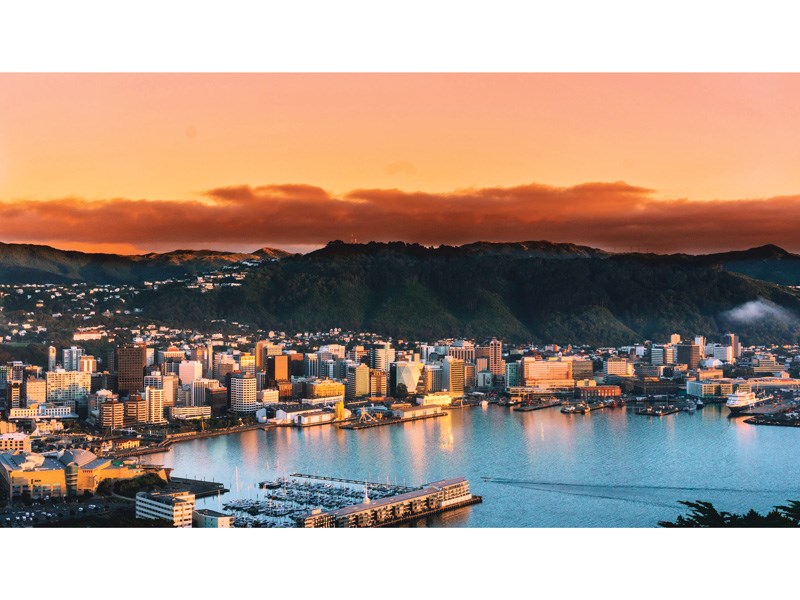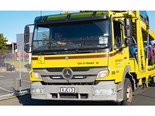Comment: More bang for the buck required
 The business case for Let’s Get Wellington Moving will cost $120 million
The business case for Let’s Get Wellington Moving will cost $120 million

 Chief executive Nicole Rosie has overseen a massive increase in staff at Waka Kotahi
Chief executive Nicole Rosie has overseen a massive increase in staff at Waka Kotahi


|
|
The business case for Let’s Get Wellington Moving will cost $120 million
|

|
|
Chief executive Nicole Rosie has overseen a massive increase in staff at Waka Kotahi
|
Nick Leggett questions the money spent by Waka Kotahi
I wrote a blog a few weeks ago calling for the optimism and can-do problem-solving that’s prevalent in our industry to rub off on Government agencies such as Waka Kotahi.
The bloated bureaucracy we’ve all experienced with Waka Kotahi was laid bare by a recently-leaked review that shows a massive increase in the agency’s back-office staff. I’d also argue that this has taken place at the same time as on-the-ground, frontline performance has fallen away.
The headline figures are startling. In 2018, Waka Kotahi employed 1372 staff. As of June 2021, that number had ballooned out to 2081—a 34% increase. HR staff went from 57 to 122 full-time equivalents, managers went from 214 to the eye-watering total of 456, accountants from 44 to 66, and administration staff from 207 to 485.
The Waka Kotahi communications team has also grown more than 150%, from 32 to 88.
Now, I understand the benefits of good communications, competent HR, good management, and administration but when you look at output and delivery to its customers, I just cannot see how these increases are justified.
In fact, none of the positions mentioned above are frontline personnel that could actually help build or maintain a road. None of these roles assists road users to get from A to B easier or helps make the network safer.
Technical expertise and industry knowledge seem to be far less valued than meaningless ‘relationship building’ and ‘engagement’. Simply, there are too many roles focused on serving the interests of their political and bureaucratic masters rather than achieving tangible outcomes for the road users and taxpayers that fund them.
Don’t get me wrong; there are still a number of high-performing, competent, and hard-working people in Waka Kotahi. The roading team at Waka Kotahi is one such example.
They know their subject matter and work hard to meet the concerns of our industry, but the reality is they are a small cog in an awfully big machine. While I’m picking on Waka Kotahi, its situation is merely reflective of a wider problem that has infected our public sector.
The total cost of personnel in what’s deemed core Government departments has risen 35.8% since Labour took office in 2017. In 2021 alone, there was a 21% increase in the number of civil servants earning more than $100,000, meaning that now more than 18,000 or 28.6% of all public sector staff earn more than $100,000.
It has also been discovered that over the last year, public sector agencies have spent around $1 billion on external contractors and consultants. This is an extraordinary level of spend and when you consider the concurrent staffing increases you have to wonder why the capability for much of this work does not exist within the public sector.
Is it a blatant absence of competence or is it indicative of a culture of risk aversion and lack of respect for taxpayers’ money? Just recently, it was revealed that $120 million is to be spent on developing the business case for the Let’s Get Wellington Moving Project, $72 million of which will come from Waka Kotahi.
Now, a business case is important, but $120 million is an eye-watering amount of money to spend at this stage of the project. The business case is also likely to prove that aspects of the Government’s proposals (such as Light Rail) don’t stack up.
The worrying thing for me is that spending such as this barely raises an eyebrow anymore, so conditioned are we to the exorbitant amounts of money soaked up by the public sector and its consultants. We simply shake our heads and move on.
As an industry that’s under enormous cost pressures, we expect meaningful and accountable outcomes from Government agencies who respect the money they get from road users and will actually deliver something in the form of better, more modern roads and a more efficient and responsive transport network. Is that really too much to ask?
Find new and used heavy machinery for sale in NZ
Keep up to date in the industry by signing up to Deals on Wheels' free newsletter or liking us on Facebook.




.jpg)

.jpg)

.jpg)
.jpg)
.jpg)

